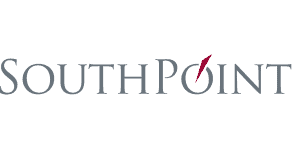 https://www.thinksouthpoint.com/wp-content/uploads/2023/10/Workers-at-manufacturing-facility.jpg
1250
2000
Abstrakt Marketing Administrator
/wp-content/uploads/2021/04/southpoint_logo_f.png
Abstrakt Marketing Administrator2023-10-31 09:00:002025-07-07 15:29:48The Role of E&O Insurance in Managing Supply Chain Risks
https://www.thinksouthpoint.com/wp-content/uploads/2023/10/Workers-at-manufacturing-facility.jpg
1250
2000
Abstrakt Marketing Administrator
/wp-content/uploads/2021/04/southpoint_logo_f.png
Abstrakt Marketing Administrator2023-10-31 09:00:002025-07-07 15:29:48The Role of E&O Insurance in Managing Supply Chain RisksA Guide to Choosing Business Insurance
Whether you’re opening a new business or reevaluating your coverage after a loss, finding the right policy for your business can be a daunting task. There are dozens of carriers, insurance types, and coverage limits to choose from—and one wrong decision can have serious repercussions during a claim scenario.
In this guide, we’ll cover the following topics to help you choose a business insurance policy based on your needs:
- Understanding Business Insurance
- What Business Insurance Covers
- Different Types of Insurance for Businesses
- Business Insurance Tips for Choosing a Policy
Understanding Business Insurance
The right business insurance protects your company from potential losses caused by employees, customers, vendors, and other third parties, as well as natural disasters and unexpected events. Without it, organizations may be left unable to cover the costs associated with an uncovered incident. Adequate coverage is a must for anyone looking to remain financially secure in the long run.
What Does Business Insurance Cover?
Business insurance can cover so many different aspects of your company? Here are just a few of the common things that can be covered by business insurance:
- Lives of the business principles
- Lives of key employees
- Lives of an employee group
- Long- and short-term disability of owners and employees
- Liability for injury to owners and employees
- Property and casualty coverage for buildings and machinery
- Liability for and damage to business transportation assets
- Product liability
- Employee health insurance for sickness and injury
- Workers’ compensation for earnings lost due to injury
Whether it’s an accident, a natural disaster, or even a lawsuit, having the proper business insurance can help you recover and keep your organization running smoothly.
What Are the Different Types of Insurance for Businesses?
Although each company has different needs, there are a few essential coverages that nearly every small business should start with when building an insurance package:
General Liability Policy
Every business faces risks related to hiring employees, performing services, selling products, or owning property. If any of them lead to accidents or negligent acts, there is a chance of a liability lawsuit against your company. If you end up in court defending your business against one, general liability insurance helps pay for damages and related fees. This makes it a must-have for small businesses, because it protects them from significant and irreversible financial damage.
Business Property Policy
Commercial property insurance covers various types of property, including buildings, office equipment, furniture, computers, fences, signs, and documents. Your policy will pay to repair or replace items after a covered loss event. Some also include business interruption insurance, which reimburses your company for lost income if you have to halt operations after sustaining property damage.
Some businesses choose to combine their property and general liability insurance in a business owner’s policy (BOP), which is coverage designed for small business owners who want to reduce premium costs and avoid unnecessary coverages.
Commercial Auto Policy
Nearly every state requires commercial auto insurance for businesses with at least one registered vehicle. Even if you don’t need auto insurance for legal reasons, you still need it if you or your employees operate a motor vehicle during work hours, regardless of whether your company owns the vehicle. Auto insurance pays for legal expenses, repairs to the other driver’s car, medical payments for you and your employees, and property damage to your vehicles.
Workers’ Compensation
Your general liability policy doesn’t pay for medical costs if your employees sustain an injury on the job. If you want to protect your employees from financial loss after a work-related injury or illness, you need workers’ compensation insurance.
Professional Liability
Businesses that offer professional services to clients may face lawsuits related to missed deadlines, errors, or breached contracts. Professional liability insurance covers the defense and settlement costs associated with these service-related lawsuits.
Cyber Liability
One data breach can lead to lost business income, client lawsuits, compromised technology, and severe reputational damage. With a cyber liability policy, you don’t have to worry about the financial aftermath of a cyberattack.
Cyber Liability
One data breach can lead to lost business income, client lawsuits, compromised technology, and severe reputational damage. With a cyber liability policy, you don’t have to worry about the financial aftermath of a cyberattack.
Business Insurance Tips for Choosing a Policy
Having the right business insurance is crucial for protecting your property, people, and processes. Here are some tips to help you choose coverage that’s right for you:
Analyze Your Legal Responsibilities and Business Assets
To start, identify the essential insurance policies required by law for your specific business, including general liability insurance, workers’ compensation, or professional liability insurance. You should also take a closer look at your additional liabilities, such as property, equipment, or valuable assets, as well as consider potential risks associated with your industry or any special circumstances.
Calculate Your Risks
Next, analyze your additional risk and liability to make sure you have the right insurance coverage. For example, if your business is located in a flood-prone area, it’s wise to invest in comprehensive flood insurance to safeguard your assets. On the other hand, if you’re operating in a high-risk industry, ensure your employees are protected with insurance that covers the risk of workplace injuries.
Determine Your Level of Comprehensibility
Insurance is not a one-size-fits-all solution. Consider the potential loss you want to safeguard against, be it your home, car, or business. Then, evaluate the level of coverage required to determine if basic insurance is enough or if you need comprehensive coverage.
Pick a Provider
Look into different insurance providers and see what they offer in terms of policies, premiums, and coverage. Once you’ve narrowed down your options, compare the top providers based on policy coverage, cost, reliability, customer service, and their claims handling process to help you find the best fit for your business.
No matter what type of business insurance you need, Southpoint can find the most affordable and comprehensive coverage from the biggest names in insurance.
Leave Choosing Business Insurance Up to the Experts
As a full-service business insurance agency with over five decades of experience, Southpoint offers unrivaled expertise to companies in Chicago and across the nation. Whether you’re a small business in need of a simple package policy or a medical provider with a long list of risks, our insurance experts can handle your insurance needs. Contact us today to get a quote.


